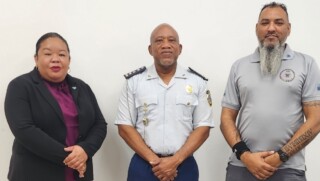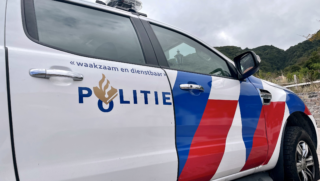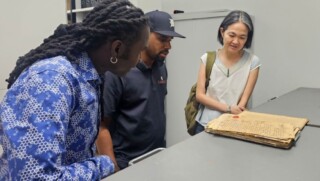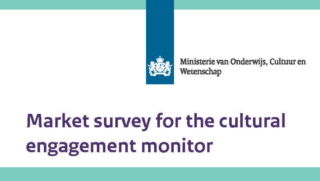Finies and Bissessar with fundraising on Dia di Rincon
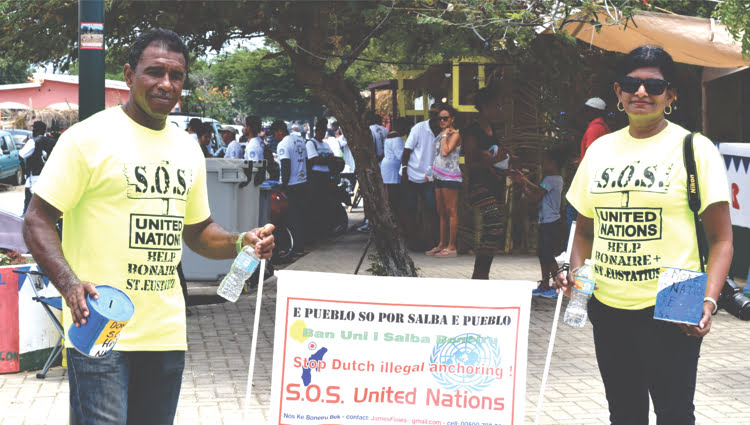
James Finies and Davika Bissessar collecting funds to help reenlist Bonaire and Sint Eustatius in the UN-list of non-self governing countries. Photo: The BES-Reporter.
Kralendijk- The two driving forces behind the Nos ke Bonèiru Bèk (NKBB) action group, James Finies and Davika Bissessar were seen this morning during the Dia di Rincon, collecting funds for the reenlistment of Bonaire and St. Eustatius with the United Nations as so called ‘non self-governing territories’.
Finies and Bissessar explained to the BES-reporter that the monies collected are important to pay for the work of Dr. Carlyle Corbin, an expert on the matter.
“Our effort to collect money for this cause is really quite successful”, said Bissessar in conversation with the BES-Reporter. “There are a lot of individuals and even business owners who are willing to contribute to our cause. However, they do not want to do so publicly and prefer to stay behind the scenes”, explained Bissessar.
NKBB is strongly opposed to the status of the islands as “public entity” under the Dutch constitution. They are even more strongly opposed to the anchoring of the current status in the Dutch constitution as “final” status of the islands, which used to form part of the country Netherlands Antilles, comprising of Curaçao, Sint Maarten, Bonaire, St. Eustatius and Saba. Every since Curaçao an Sint Maarten opted to be separate countries in the Dutch Kingdom, The Netherlands has been managing the 3 smaller islands as “public entity”. Even the strongest believers in a direct tie with The Netherlands have been having second thoughts, now that reports have concluded that serious problems on the island, such as poverty, have deteriorated rather than improved since the direct rule by The Netherlands.
Another point of criticism is the fact that The Netherlands seems focused on the strict implementation of Dutch rules and criteria, but stops short of providing the funds to the islands to which, based on objective criteria, they would be entitled if they were true Dutch municipalities. Social benefits which exist in The Netherlands are, by far, not comparable to those on the BES-islands. According to The Hague, the ‘different circumstances’ and ‘a different economic reality’ on the islands justify different -and in general much lower- social benefits.
On the other hand; proponents of the current status point to considerable investments in among others Health care and the educational system.




